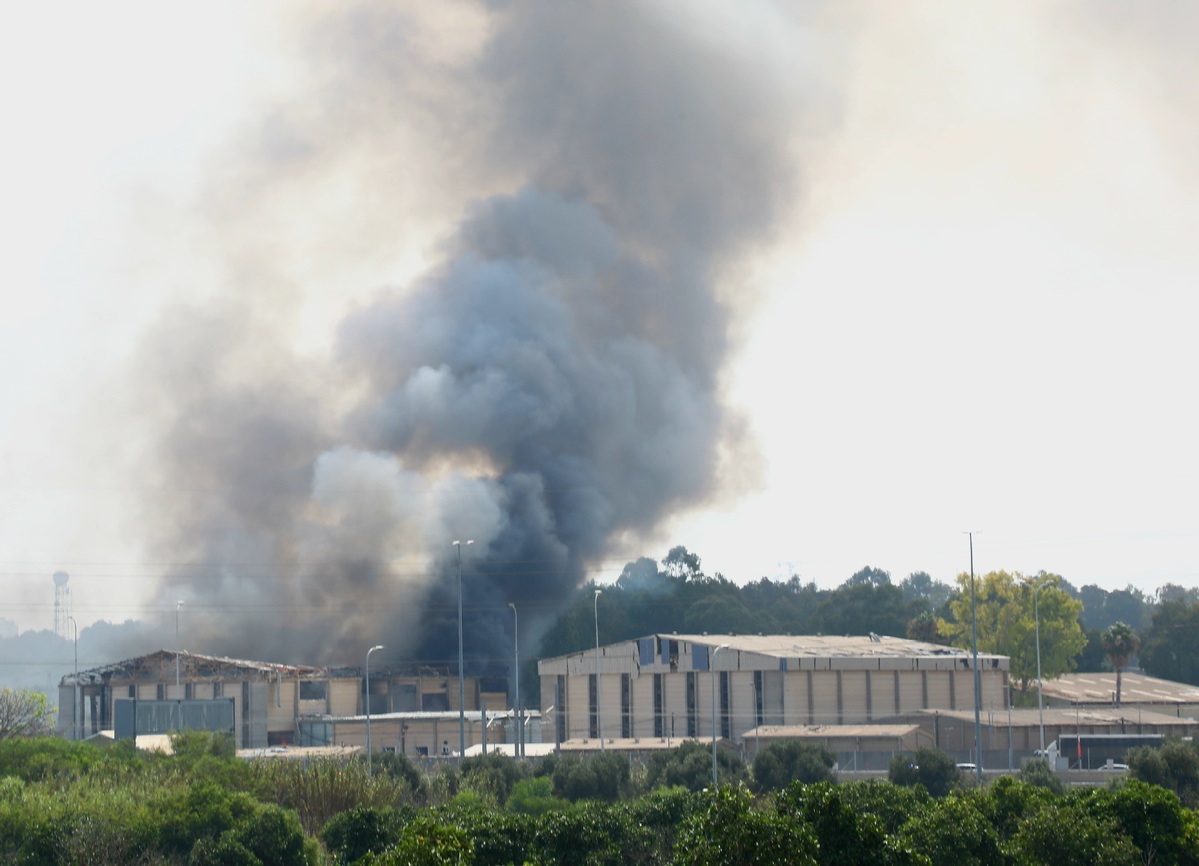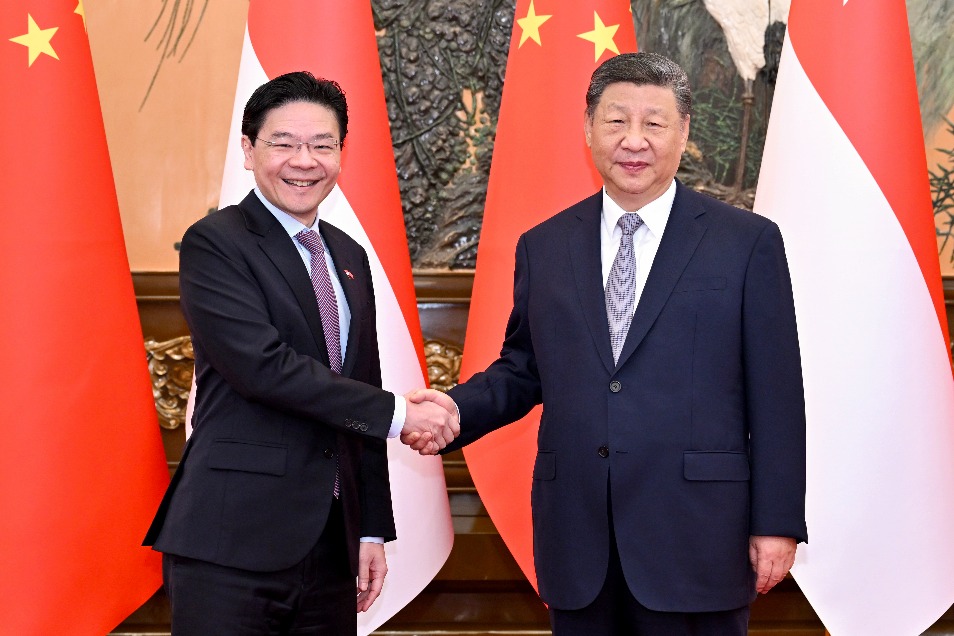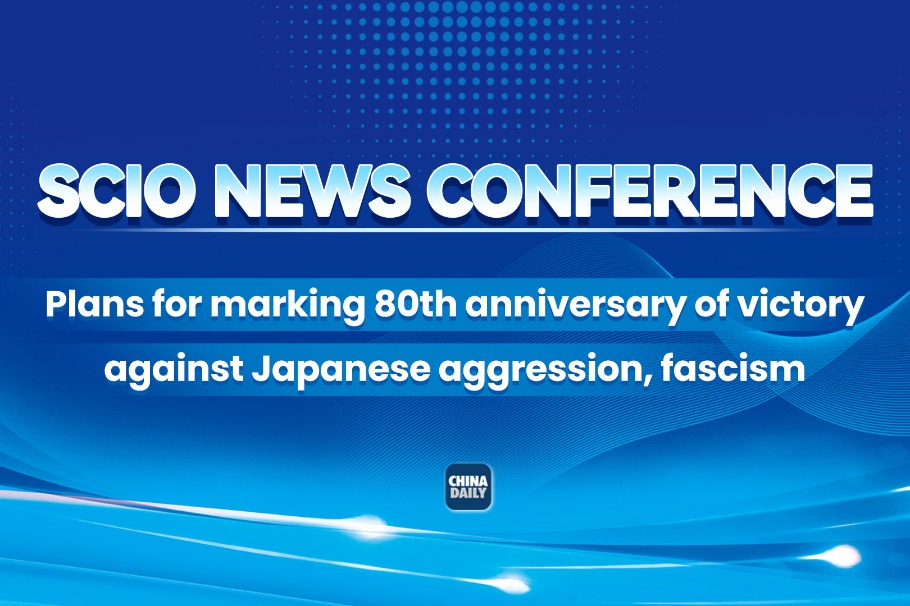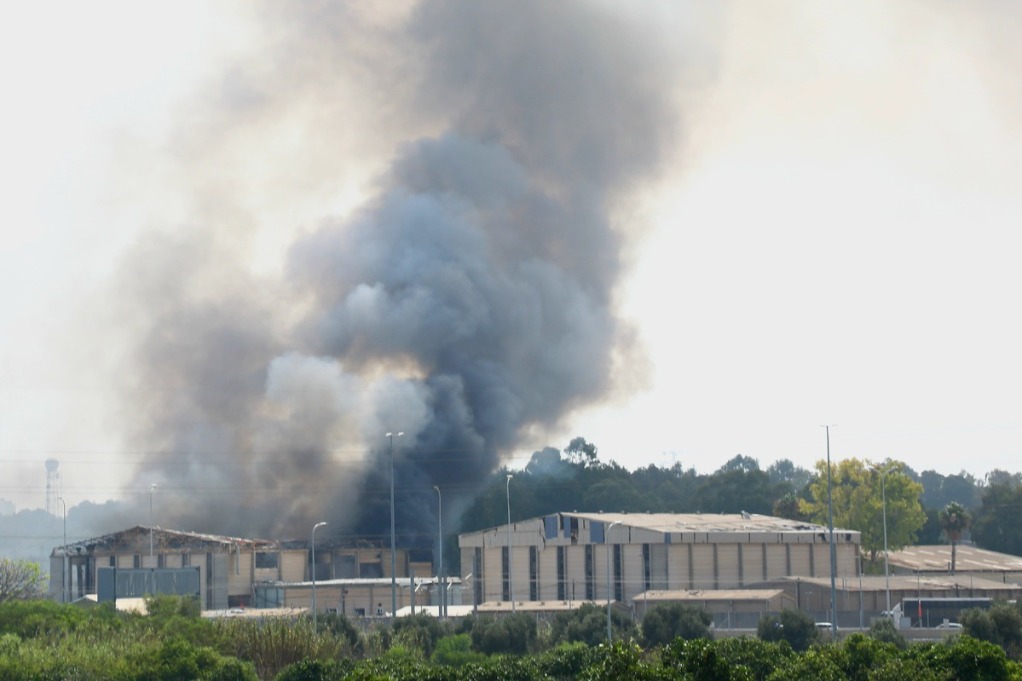'Ceasefire' a watershed of Middle East geopolitics


Iran launched a limited missile attack on the Al Udeid Air Base, a US military air facility in Qatar on Monday, in retaliation for the US bombing of Iran's nuclear sites. Shortly after that, US President Donald Trump announced on social media that Israel and Iran had agreed to a "complete and total ceasefire".
Although Israeli strikes continued in Tehran and other cities early Tuesday, the news of a ceasefire has brought a glimmer of hope amid the tensions in the Middle East, which is on the brink of war.
This development could mark a significant de-escalation in the current round of military conflict between Israel and Iran, and may bring a window of opportunity in the two-decade-long Iran nuclear issue.
From the perspective of the military conflict, although Iran has not officially declared an end to its retaliatory actions against US forces, its approach suggests a high probability that such retaliation has temporarily concluded. Tehran stated that its response would be proportionate, since the US dropped 14 heavy bombs on Iran on June 22, Iran accordingly launched 14 ballistic missiles at the US military base in Qatar. The symmetry in scale indicates a measured, tit-for-tat retaliation.
Shortly afterward, the US president promptly expressed his stance, even "thanking" Iran for what he characterized as a measured retaliation, implying Washington would likely refrain from further military activities. The way Iran chooses to play the ball at its feet has already determined the conflict's significant de-escalation, and prospects for renewed negotiations in the near future appear significantly heightened, since all parties show willingness to negotiations.
What would negotiations entail? Precisely, the Iran nuclear issue, such as, how to handle existing nuclear materials in Iran, how to supervise and manage its future nuclear activities, and what kind of nuclear programs Iran will be permitted to pursue, which can only be resolved through negotiations, not military conflict.
This round of conflict has increased the likelihood of Iran and the US reaching a nuclear agreement. The three parties involved have clarified their respective red lines on the nuclear issue, laying bare the balance of their military power.
However, US intervention in the conflict between Israel and Iran is also dangerous this time. The US may have temporarily pushed Iran back to the negotiating table by flexing its muscles. This intervention may exacerbate resentment among people in the Middle East toward Israel and the US, potentially paving the way for future attacks.
Under such circumstances, reaching a deal seems significantly more achievable than before. This could potentially signal the beginning of a new geopolitical landscape in the Middle East. In the previous regional power structure, the two primary military powers in the region hesitated to contemplate attacks on each other's homeland territories due to the perceived danger involved.
Yet since last year's two direct Israel-Iran homeland attacks did not trigger full-scale war, this time - despite Israel's massive strikes on Iran and the US' large-scale attacks on Iranian nuclear facilities - the conflict still stopped short of full-scale escalation. This represents a watershed in Middle East politics.
In the future, there are two potential scenarios. One is that Tehran and Tel Aviv could reach a relatively long-lasting peace. The other is that both sides may perceive attacks on each other's homeland as carrying little risk, leading to such strikes becoming a new norm in the Middle East.
The author is executive director of the China-Arab Research Institute of Ningxia University.
The views don't necessarily reflect those of China Daily.
If you have a specific expertise, or would like to share your thought about our stories, then send us your writings at opinion@chinadaily.com.cn, and comment@chinadaily.com.cn.































